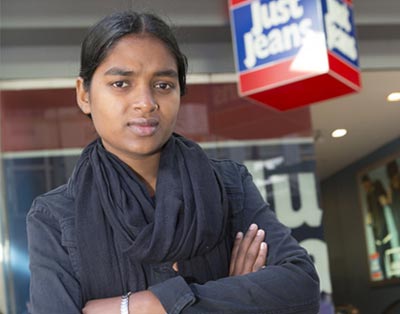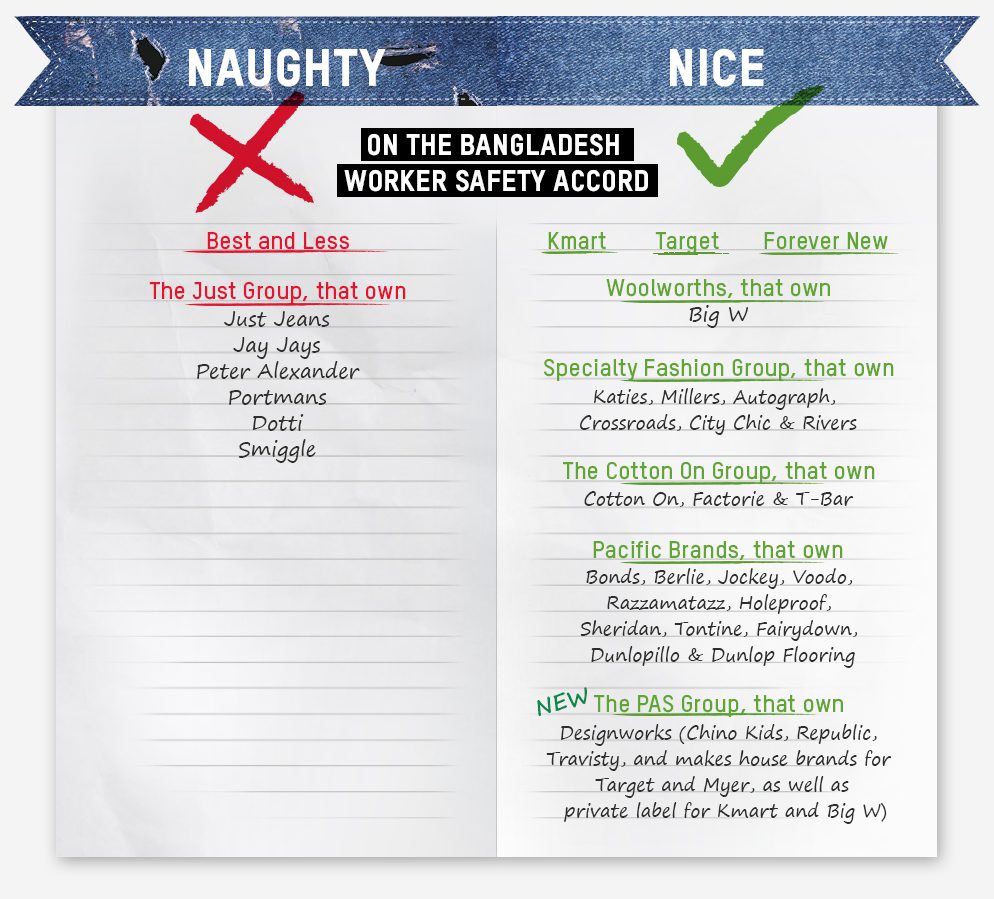
Australians love denim. 670,000 tonnes of the stuff in 2014 alone and with a $56 billion price tag. That’s a lot of cheddar, and a whole lot of denim.

But the faces behind this juggernaut of an industry are not in magazine spreads or towering over traffic on billboards. If you buy a pair of jeans today, chances are they will have been dyed, cut, sewed and riveted by a woman in either China or Bangladesh.Women like Sumi Abedin (pictured).
Stopped from escaping a deadly factory fire
Sumi worked in the Tazreen textile factory in Bangladesh producing well-known labels. The garment industry in Bangladesh is a $19 billion dollar a year industry that’s fuelled by four million workers — most of whom are young women.
When a fire broke out in November 2012, Sumi was at work on the fourth floor. When Sumi and her colleagues tried to leave, they were hampered by untrained supervisors who tried to force workers back to their stations.
When a co-worker forced a window open on the third floor, Sumi jumped. She broke her arm and ankle but escaped the fire that tragically claimed the lives of 120 of her coworkers.
The Tazreen fire and the testimony of workers like Sumi – along with three other deadly factory tragedies – should have raised alarm bells for the companies operating in Bangladesh. It didn’t.
When a co-worker forced a window open on the third floor, Sumi jumped. She broke her arm and ankle, but escaped the fire that tragically claimed the lives of 120 of her coworkers.
More than 1000 lives lost in the Rana Plaza collapse
Less than a year later the Rana Plaza Factory collapsed taking with it the lives of more than 1000 garment workers, the majority of whom were women. Unlike the Tazreen fire, it was the scale of the destruction at Rana Plaza which held the world’s attention.
With international support and cooperation between brands and the trade unions representing Bangladeshi workers, the Bangladesh Fire and Building Safety Accord was designed as a comprehensive, independent and enforceable agreement — to make garment factories in Bangladesh safer.
It includes mandatory, independent inspections of buildings, mandatory repairs and renovations with financial support from the brands and increased access to workers’ unions for all factory staff. The bare minimum we would expect from any type of employment here in Australia.
For the last two years we have pressured ten of the country’s largest garment manufacturers to sign up. However Best and Less and the Just Group – Australia’s largest denim manufacturer – are still breaking hearts by refusing to sign.
With the second anniversary of the Rana Plaza collapse on Friday 24 April we’re on a mission to stop the #heartbreakers. So far these two big brands have ignored the stories of their workers. It’s harder to ignore a nation of denim-loving, full-hearted, consumers like you.
Add your voice to Sumi’s and help stop the #heartbreakers.
Share the image and let Just Jeans know if they want to sell denim in Australia they need to protect the people making it.
